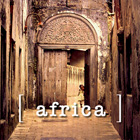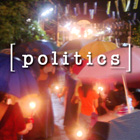
|
|||||||
Photo credit for "Africa" graphic, above: © 2005 Jennifer Lewis
|
FIRST JUDGES, NOW LAWYERS ON STRIKE AGAINST GOV'T AGGRESSION IN UGANDA
NATIONAL LAYWERS UNION HAS VOTED UNANIMOUSLY TO EXTEND JUDICIAL STRIKE IN PROTEST AGAINST POLICE ASSAULT ON HIGH COURT 7 March 2007 On 1 March 2007, Ugandan security forces under the control of President Yoweni Museveni stormed the offices of the High Court, assaulted civilians, lawyers and judges, and re-arrested 6 suspects that had only just been granted bail. The action showed not only disrespect for the peaceful process of adjudication, but also for the legal independence of the judiciary in making its rulings. Some have viewed the raid as an assault on democracy and a form of coup d'état, in which the executive simply erradicates the judiciary as a competitor for power, in order to establish a de facto dictatorship. The Museveni government says this is not the case and has apologized for the brutalization of civilians and the perceived insult to the courts. The nation's judges chose to go on strike to protest the violent siege of their highest seat of power. An attack on the judiciary is seen as a clear attempt to undermine the rule of law and consolidate state power under not only one branch, but one party. President Museveni has since met with Chief Justice Benjamin Odoki to discuss resolving the impasse. The announcment was made that their talks may lead to a compromise and an end to the strike. The Uganda Law Society called a meeting of hundreds of its members to discuss joining the strike, to support the judiciary and to ensure that the government cannot easily escape responsibility. They voted unanimously to cease working for at least 3 days after the judges return to work, and to prosecute top officials involved in the military-style assault. The Daily Monitor reports "Society members also voted overwhelmingly to suspend from the ULS, five high-level government officials for their perceived roles in the run up to the March 1 court siege... Those suspended include; the Inspector General of Police Maj. Gen Kale Kayihura, Minister for Security Amama Mbabazi, Coordinator for Intelligence Services Gen. David Tinyefuza, the Attorney General Khiddu Makubuya and the Director of Public Prosecutions, Mr Richard Butera." Police Inspector General Kayihura denies any involvement and has told the press he was out of the country. The Museveni government has said it would be unfair to conclusively suspend members of the bar without conducting fair hearings. The meeting also led to an agreement that on the third day of the lawyers' strike, they would converge at the High Court building for a "cleansing ceremony". This is not the first time the government has led this kind of assault on the judiciary. Intimidation is seen as an ongoing problem, and "In 2005, the ULS resolved to stop recognising Dr Makubuya as head of the Bar, following the November 16, 2005 siege of the High Court by the Black Mambas." [s]
|
||||||
|
|||||||

